Local News
Leo Lowy’s story of survival centrepiece of annual remembrance program
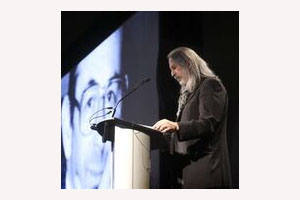
By MYRON LOVE
Since the International Holocaust Remembrance Alliance (IHRA) in 2005 designated January 27 – the anniversary of the liberation of Auschwitz – as the date for the annual commemoration of the Holocaust, communities around the world have been planning events on or around that date to continue to raise awareness of the greatest evil of the 20th century and remember the victims.
The centerpiece of this year’s commemoration – in Winnipeg – of the 75th anniversary of the liberation of Auschwitz – was the story of Holocaust survivor Leo Lowy. Roughly 500 people gathered at the Canadian Museum for Human Rights on the afternoon of Sunday, January 26, to hear his story.
As with many, if not most, Holocaust survivors, Lowy’s story – as related by his son, Richard, in Leo’s own words (he passed away in Vancouver in 2002) and a documentary – “Leo’s Journey” – begins with a happy childhood surrounded by a large extended Jewish family and friends – in his case in the town of Berehova, which was then located in Carpathia and is now part of Ukraine – an idyll that was shattered by the arrival of the Nazis (although in Hungary, which captured Berehova at the beginning of the war, the Hungarian fascist Arrow Cross would be almost as brutal).
Lowy and his sister, Miriam, were saved from the ovens – the fate of the rest of their family – at Auschwitz in the summer of 1944 for the reason that they were twins – a particular interest of Dr. Josef Mengele – AKA “The Angel of Death” – who determined which of the Jews and others coming out of the boxcars would live and which would be sent right to the gas chambers.
In introducing his father’s story, Richard Lowy noted that, as with many Holocaust survivors, Leo was reluctant to talk about his experiences as a subject of the notorious Mengele. It was only in the late 1990s that Leo began talking about what happened to him and his sister.
In 2000, the Vancouver businessman was persuaded by his three sons, Richard and older brothers Gary and Stephen, to return to Europe and revisit Auschwitz, as well as his hometown. Richard Lowy’s documentary, “Leo’s Journey”, intersperses scenes from the family’s travels with interviews with two other Holocaust survivors – each of whom had a twin sister – and archival historical footage. The documentary was narrated by the distinguished Canadian actor Christopher Plummer.
I was somewhat surprised to learn from the documentary that the Germans actually had a trial run in performing medical experiments on unwilling living people. Pre World War I, Germany had colonies in Africa where thousands of Africans were rounded up, interned in concentration camps and subjected to medical experiments at the behest of German pharmaceutical companies. After the first World War, the German colonies in Africa came under British rule.
Also of note in the documentary was the role that eugenics played in Nazi thinking and the Final Solution. Eugenics was a popular scientific theory which called for forced sterilization of so-called weaker individuals – those with mental or physical handicaps, addictions or criteria based on race – in order to “improve the quality of the human species”.
Prior to the showing of the documentary, Lowy narrated his father’s story based on an interview that Leo gave to the Holocaust Memorial Museum in Washington in 1985. In his father’s words, Richard Lowy described Leo’s early life in Berehova in a family of six children (he was the only boy). When the Hungarian cames in 1939, Leo had recalled, they were mainly interested in robbing the Jews.
He described how, in 1944, the Nazis shut up all the Jews in town in a brick factory for almost ten days, than loaded them into boxcars for the journey to Auschwitz. The then 15-year-old Lowy remembered the chaos and hollering when they arrived at Auschwitz, the presence of Mengele on the platform directing people to the left or right –to the gas chambers and death or to life, miserable as it may have been – and his and Miriam’s being separated from the rest of the family, put into a van with several other sets of Jewish twins, and driven to a hospital barracks.
“I was getting injections all over my body,” he recalled.
Some twins were operated on and, he recalls, one young male was castrated.
One time, he was taken into a room, put on a table and had his blood drained to transfuse a German soldier on the next table. “I was so weak after that I had to practically crawl back to the barracks.”
Lowy recalled teams of doctors, daily blood tests, being examined every day and being injected with various fluids. “It wasn’t painful, but it was scary,” he noted. “I had never even seen a doctor before.”
He recounted one time when he and his sister were personally examined by Mengele. “He was soft-spoken and trying to be pleasant, but I was so scared that I was shaking.”
Every morning, Lowy remembered, he would wake up in his barracks to find several others in the barracks had died overnight. ‘We would have to assemble for roll calls every morning with the corpses.”
On January 17, 1945, Lowy and all the rest of the surviving inmates of Auschwitz were assembled to be sent on a death march in the cold and the snow. “I knew I wouldn’t survive it,” he said.
He managed to hide in a basement with a few others for three days until liberated by the Americans.
He and Miriam came to Canada in 1948 as war orphans.
“My dad had been involved in Holocaust education in his later years,” noted Richard Lowy. “After he passed away, I felt that I had to continue his legacy of Holocaust education.”
The afternoon program also included: two selections from Zane Zalis’s oratorio, “I Believe”, sung by the Winnipeg Youth Chorus; remarks by Clint Curle, senior adviser to the president for stakeholder relations at the museum; and Belle Jarniewski, the executive director of the Jewish Heritage Centre of Western Canada (which partnered with the CMHR). Financial support was also provided by the Azrieli Foundation.
Jarniewski, who is the child of Holocaust survivors, spoke of the “shocking reoccurence of antisemitic hate and violence” in the last few years – especially in western countries which Jews looked to after the war as safe havens.
On the positive side, more than 50 world leaders came to Auschwitz to mark the 75th anniversary of the liberation and, a few days earlier, a group of Jewish and Muslim leaders, led by Muslim World League Secretary-General Mohammed bin Abdulkarim al-Issa, also paid a visit to Auschwitz.
“With the passage of time,” Jarniewski observed, “survivor memoirs and testimony will play an increasingly central role in the safeguarding of the historical record. It is our duty to ensure that their words are implemented into education on the Holocaust, human rights, and genocide awareness. “
As to the Angel of Death himself, Jarniewski noted that regrettably, he was never brought to justice. As with many other Nazis, he escaped to South America where he died in a drowning accident in Paraguay in 1979.
Local News
New Israeli restaurant opens in River Heights

By BERNIE BELLAN (July 6, 2025) It’s been a long time since our community has been able to welcome the opening of a restaurant that specializes in Israeli food.
That void is now going to be filled with the opening of The Green Falafel, at 1833 Grant (corner of Centennial – next to the Subway).
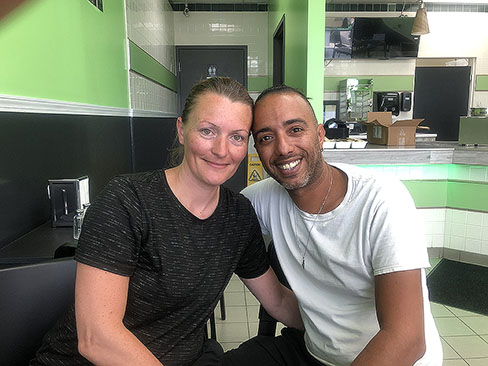
The restaurant is the fulfillment of a dream long held by the husband and wife team of Ariel and Eden Maudi, who have been living in Winnipeg the past 11 years.
Ariel, who was born in Israel and grew up in Beer Sheva, says that he worked in telecommunications in Ramat Gan for several years. He adds though that he had always dreamed of owning his own falafel stand in Israel, but life was difficult there and he decided to come to Canada as a tourist to see whether there were any opportunities here for him, Eden and their two young children.
Eden, who was born in Russia and moved to Israel with her family in 1996, stayed behind with the two kids, who were both pre-schoolers, while Ariel tested the waters in Canada first.
Ariel says he came to Canada as a tourist in 2013. His first stop was in Toronto, where he acquired his 1st class driver’s license. At the end of 2013 he moved to Winnipeg where he began working as a truck driver. Soon he found himself employed as a successful sales person at Vickar Nissan where, he says, he once achieved the status as the top car sales person in Canada. After working at Vickar Nissan for a number of years, Ariel began working as an installer for Bell MTS.
Meanwhile, Eden began working at a Walmart, later at the Costco on Regent.
But, when the opportunity to move into a space that had been previously occupied by another restaurant, but which had closed, became available, Ariel and Eden decided to open their own Israeli restaurant in an area that hadn’t seen Israeli food served since the controversial closure of Bermax Café in 2019.
The Maudis say that they will be serving a variety of Israeli dishes – all vegetarian, and that they will be fully kosher.
The “green” in Green Falafel, by the way, Ariel Maudi explains, comes from the cilantro and parsley that are added to the chickpeas. In addition, their pitas will be coming from Israel and will be baked fresh daily.
The Green Falafel will be open from 10-8 daily. Delivery will be available through Uber Eats and DoorDash.
Call 204-557-7837 for information.
Local News
Previews of shows with Jewish performers at this year’s Fringe Festival July 16-27
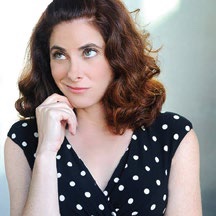
For show dates and venues go to winnipegfringe.com
By BERNIE BELLAN As has been our custom for many years now we try to find shows that have either Jewish performers or themes that would have particular appeal for Jewish audiences. Many of the Jewish performers at this year’s festival have been here before, but several are new. In no particular order here are blurbs about the shows we’ve found that fit the criteria I’ve just described. (By they way, if we’ve omitted a show that should be included in our list there’s plenty of time to get added to this post. Just drop me a line at jewishp@mymts.net.)

You’ve Been Served: A One-Woman Show About Divorce, Cults, and Coming of Age at Midlife
Noemi Zeigler
You are hereby summoned… to laugh, cry, and maybe belt out a Streisand number in solidarity. You’ve Been Served is a raw and riotous solo comedy by writer-performer Noemi Zeigler. It all begins when Noemi is served divorce papers on top of a garbage bin lid while taking out the trash—an undignified start to a full-blown midlife unraveling.
At 50, still clinging to her dream of becoming a singer, she falls under the spell of a music producer slash self-help guru, joins a spiritual cult, and, instead of landing a record deal, she lands in jail. Behind bars, with help from her long-buried inner child, she begins to reclaim her voice and her power. Turns out, dreams really do come true—just not the way she expected.
The show features vividly drawn characters—including a manipulative cult leader, a toxic ex-husband, and a jail guard named Roach who shares Noemi’s obsession with the fashion of Charlie’s Angels (the ‘70s TV version, of course.)
With salsa dancing, twerking, and a belting rendition of Don’t Rain on My Parade, Zeigler dives into abandonment, reinvention, and self-rescue. As she confronts perimenopause, she discovers it’s not the end—it’s the new puberty. The show touches on grief, sexuality, and spiritual confusion, but Noemi’s childlike optimism asks: What if your breakdown is actually your breakthrough?
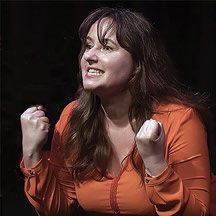
You’re good for nothing… I’ll milk the cow myself
Written & Performed by Natacha Ruck
France, 1981: The first socialist president is about to be elected and young Natacha is ready to implement her own political platform. But first, she has to take down the schoolyard bully,emasculate the rules of French grammar and make off with grandmother’s chocolate.
If you think you know the limits of Jewish mothers, evil grandmothers and transcontinental lovers, meet Natacha Ruck’s family. This true tale of three generations of women, facing three world wars, is equal parts hilarious, shocking and zany.
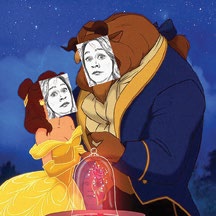
A One Human Being, Potentially Comedic Performance of Beauty and the Beast NEW WORK!
Written & Performed by Alli Perlov
Be our guest! Local high school drama teacher Alli Perlov is back for a tale as old as time. Can she sing? Not really. Can she act? That’s debatable. Will you laugh? Oh… probably.
Perlov plays dozens of characters, some human, some animal, and many objects, in a comedic exploration of Beauty and the Beast.
In an homage to this brilliant musical adventure, through witty commentary and unstoppable energy, Perlov aims to entertain an audience that isn’t forced to be there like her students.

Hockey Sticks and Beaver Pie
Written & Performed by Melanie Gall
Take a trip around Manitoba. From the 30,000 ft. St. Adolphe snow maze to the Narcisse snake dens! After all, where else holds both the title of Slurpee Capital of the World and the Guinness Record for the most people simultaneously howling like wolves?
Deanna Durbin, Terry Jacks and Burton Cummings are among the many homegrown stars, and Hockey Sticks features their music along with original songs and the stories that make this province unique.
Starring Melanie Gall from past shows Piaf & Brel, Ingenue and Toast to Prohibition
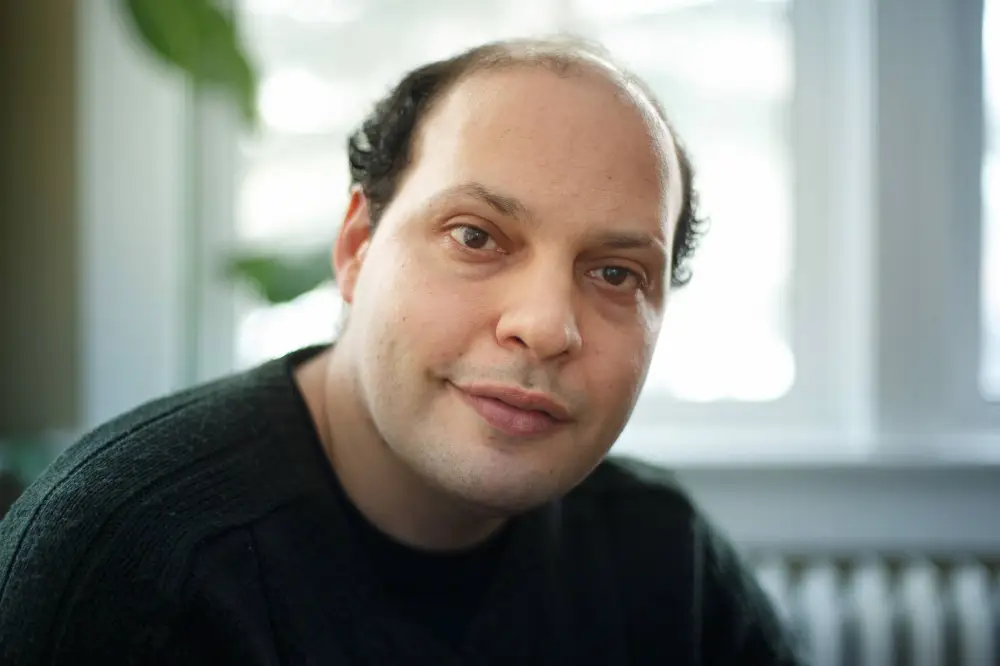
Nerohilarity Exposed
Produced by Adam Schwartz
We all sometimes feel exposed, whether that’s as a fraud or a pretender.
The performers of the award-winning Neurohilarity show, Danielle Kayahara (Laugh Out Loud CBC), Carole Cunningham (Yuk Yuks, The Debaters), Adam Schwartz (Winnipeg Fringe) and Rollin Penner (Yuk Yuks, CBC, Rumors, Winnipeg Comedy Festival), apply a comedic spin to the experiences that make us feel insecure, stripping away the emotional weight with nittygritty jokes and stories that will have you laughing uproariously.
Brilliantly awkward.
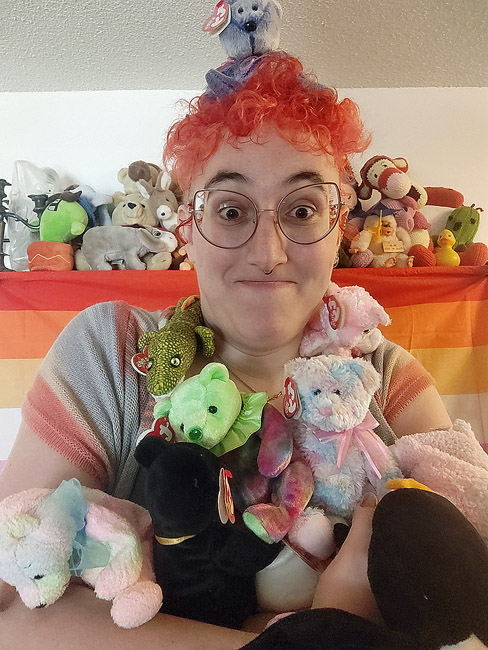
A Lesbian in the Kitchen
Willow Rosenberg
Professional lesbian Willow Rosenberg takes you on a journey through the centuries, superstitions and tablespoons of her lifelong passion for baking in this spiritual successor to 2024’s Jenny Award-nominated A Lesbian in a Bear Store.
Whether you have a favourite spatula, bake once or twice a year, or live in constant fear of being told to “just fold it in”, this one-woman show about family, joy, tradition (but make it gay),
Judaism, comfort, home (but make it gayer*), love, chemistry and magic is for you!
*Who’re we kidding, it’s all gay!

Eleanor’s Story: An American Girl in Hitler’s Germany
Written & Performed by Ingrid Garner
(Ed. note: Although Ingrid Garner isn’t Jewish, we thought the theme of this show might have a special appeal for Jewish readers.)
Based on Eleanor Ramrath Garner’s best-selling memoir, this 16x internationally award-winning adaptation – performed by her granddaughter, Ingrid Garner – details Eleanor’s youth as an American caught in Second World War Berlin.
Punctuated with humour and accompanied by cinematic sound and video, Garner embodies her ancestors in this coming-of-age odyssey, delivering an account of war that is more relevant than ever.
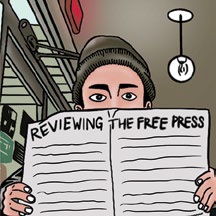
Reviewing The Free Press 2
Benji Rothman
The Winnipeg Free Press has run amok, reviewing each and every Fringe show over the past two decades without consequence or recourse. Now, it’s their turn… again.
In this refurbished work that debuted at last year’s Winnipeg Fringe, Benji Rothman once again takes the Winnipeg Free Press to task. In this (mostly) new, (hopefully) hilarious 45-minute show, Rothman dives deep into their past and exposes their faulty journalism, imbalanced reporting and, of course, embarrassing typos.
Local News
Jewish performers at this year’s Winnipeg Folk Festival July 10-13
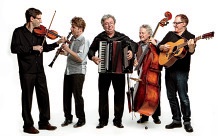
The Black Sea Station
Long ago, there were the klezmorim, itinerant musicians who roamed the back streets of Eastern Europe, playing at parties for meals and a few coins. The sound they honed then was a visceral exploration of life’s joy, and its loss; they could whip audiences into a frenzy of dancing, or bring them to tears with the mournful wail of a clarinet. Today, Winnipeg’s own The Black Sea Station is carrying on this tradition. Featuring Daniel Koulack (bass), Victor Schultz (violin) and Myron Schultz (clarinet) — cofounders of seminal local klezmer act Finjan — along with Moldovan accordion wizard Nikolai Prisacar and multi-instrumentalist Ben Mink, the quintet transports listeners to a time and place long past. Through a mix of original songs rooted in history, and traditional tunes spun up with modern zest, they whirl through the exuberant klezmer sounds of their Eastern European heritage, tending the old ways with deep love and respect.
The Black Sea Station will be performing Sunday, July 13, at 1:00 pm in Snowberry Field.
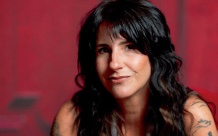
Romi Mayes
Romi Mayes has taken some hard knocks in her life, but she’s never faded away. For more than 25 years, Manitoba’s first lady of blues-rock has been a lynchpin of the Canadian roots scene. She earned that position the old-fashioned way, through her gritty, passionately emotive music. With her sizzling guitars and full-throated rasp, the Juno-nominated performer howls and purrs through razor-edged lyrics, rocking out wherever she can find a stage. She’s long been one of the hardest-working musicians on the circuit, keeping a busy slate of gigs and mentoring up-and-coming artists to get a foothold on the trails she blazed. Now, after a nine-year hiatus from the studio, Mayes has put her scintillating sound back on record with her long-awaited seventh album, Small Victories — a return that leaves no doubt, no matter the ups and downs, Mayes is here to stay.
Romi will be performing Friday, July 11, at 1:00 pm in Burr Oak.
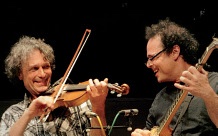
Leonard Podolak (with Matt Gordon)
Ireland’s Matt Gordon is a fiddler and singer, whose fleet-footed clogging and thigh-slapping hambone has taken stages by storm since the 1980s. Leonard Podolak is a virtuosic master of the clawhammer banjo, who for decades has whipped up some of Manitoba’s wildest roots parties with his band, The Duhks. Put those talents together, and they can promise you this much: we’re all gonna have a real good time. Longtime friends and musical collaborators, Gordon and Podolak deliver an exhilarating trip through old-time Appalachian music. Their performances seamlessly blend intricate instrumental lines with heartfelt singing and dazzling dance. They’ve teamed up on a few records over the years, including 2020’s bigband extravaganza Power Wagon: Live At Shanley’s. But the best way to experience this duo’s toe-tapping, hand-clapping chemistry is to see it live.
Podolak and Gordon will be performing A concert with a side of clogging Sunday, July 13, at 3:00 pm in Folk School.
